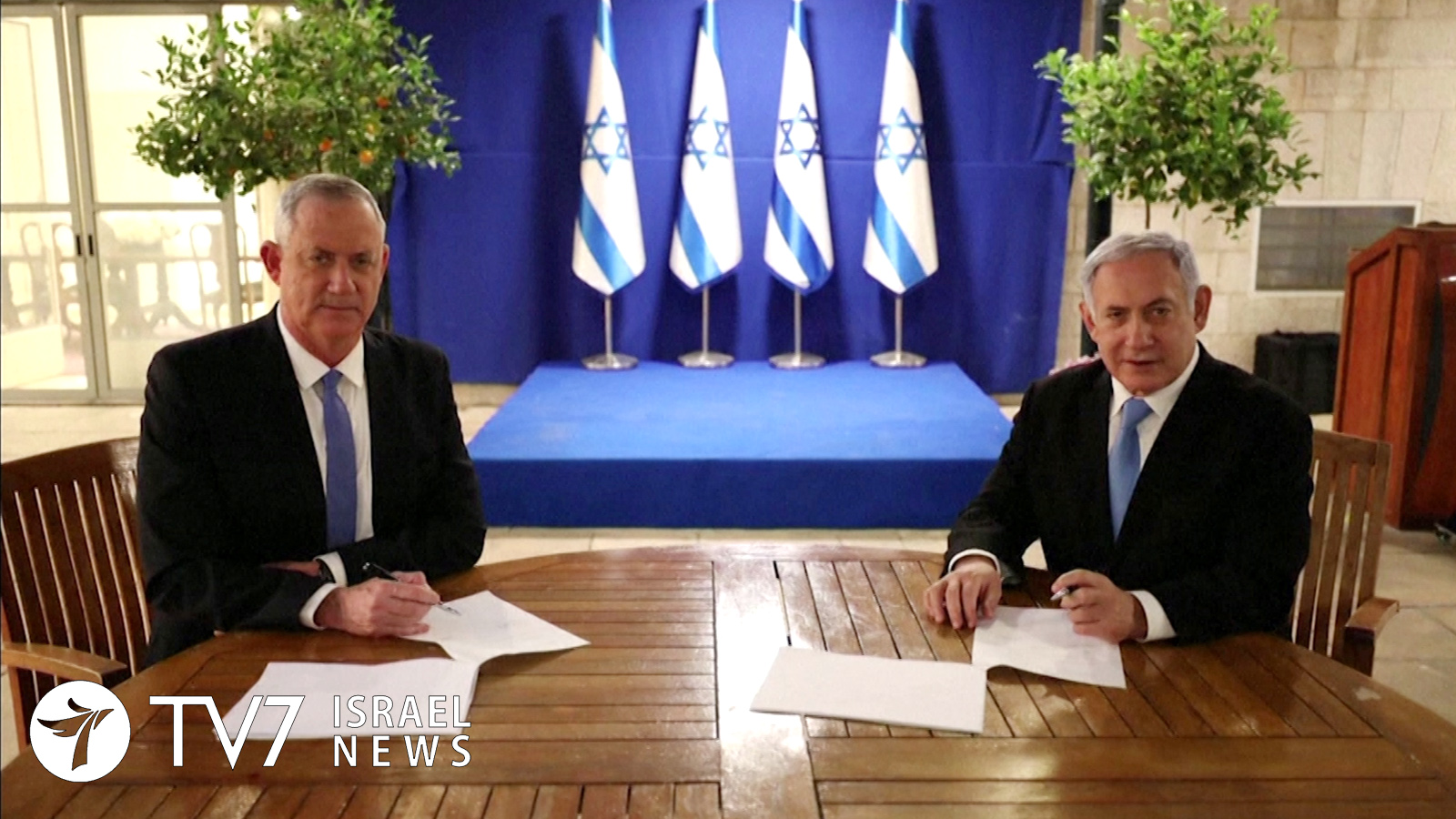483 days of protracted unprecedented political chaos in Israel – marked by deep divisions, shallow rhetoric and internal bickering dating back to 26 December 2018 – has finally come to an end. Incumbent Prime Minister Benjamin Netanyahu and Knesset Speaker Benny Gantz made way for rays of light to once again shine upon Jerusalem’s seat of power with a joint declaration that they had achieved a long sought-after national emergency government.
The two leaders signed an agreement authorizing an alternating premiership in which Netanyahu will remain at the helm of the government until November 2021, while Gantz serves as “Prime Minister-Designate,” Deputy Premier and Defense Minister. Netanyahu’s departure after the first 18 months will mark the first time he will have vacated the Premier’s Office in more than 12 years, enabling Israel’s former military chief Benny Gantz to assume the reins of power.
The newly established government will be the 35th since Israel’s founding. 32 ministers will be assigned portfolios during the first stage, that will be expanded to 36 in the latter.
It is important to highlight inclusion of a clause in the agreement that helped to facilitate the long-anticipated breakthrough to a unity government. In the event that the High Court of Justice issues a ruling – before the swearing in of the next government – that Netanyahu is ineligible to form a coalition due to the criminal indictments against him; the agreement would immediately become null-and-void and the Israeli Knesset would be dissolved. Netanyahu would remain Interim Prime Minister until the holding of new elections should those events occur.
The Israeli public responded to news that Jerusalem’s leadership vacuum would be soon be filled with satisfaction, and imperative for the country to be safely navigated out of the ongoing coronavirus crisis. Tel Aviv residents Avi Alka Llay told Reuters that he believed the national emergency government is “the best solution, because we are now with more than one million unemployed and the most of the businesses are in a difficult situation,” while Hila Oren said “Of course, I am happy.” Even though she went on to voice uncertainty over Netanyahu’s continued leadership, she said it was important to overcome challenges presented by COVID-19 and get the economy moving again.
The coalition agreement was signed at the Prime Minister’s Residence in Jerusalem about an hour before the start of Holocaust Remembrance Day events.
